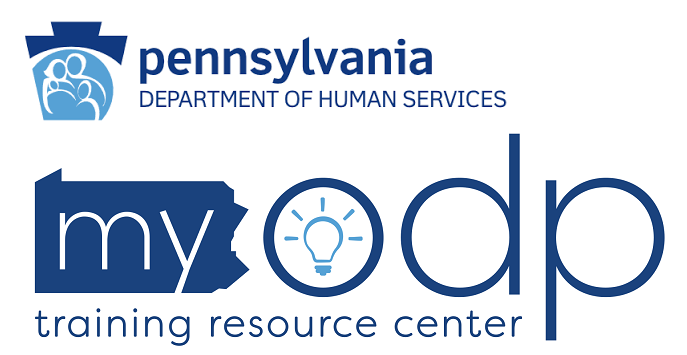Positive Approaches Journal, Volume 11, Issue 2
Morgan | 58-63

Volume 11 ► Issue 2 ► August 2022
Exploring Misconceptions about Co-occurring Mental Health Conditions in Autistic People
Lisa
Morgan, M.Ed., CAS
Among the various myths and misconceptions about autism is the idea that autism causes co-occurring mental health conditions. While it’s true that there are many autistic people living with anxiety, depression, suicidal ideation, and other co-occurring mental health conditions, the root cause is not autism. According to the lived experience of autistic people, there’s another explanation.
As an autistic adult diagnosed later in life at 48 years old, and a suicide loss and attempt survivor who lives with post-traumatic stress disorder (PTSD) and high anxiety, I believe the biggest misconception about co-occurring mental health conditions among autistic adults is that they are caused by having autism.
They are not.
I submit that co-occurring mental health conditions are caused by living with autism in our society.
The Diagnostic and Statistical Manual of Mental Disorders, Fifth Edition (DSM-5) explains autism as a neurodevelopmental spectrum condition with or without intellectual disability in the areas of social communication and interactions, and restricted, repetitive behaviors. My belief, along with many other autistic people, is that autism is a different way of being.
It is a culture.
A culture of people who, over time, can and do develop co-occurring mental health conditions related to living as an autistic person. Indeed, a research study from Denmark found more than 90% of autistic people who attempted or died by suicide had at least one co-occurring mental health condition of which anxiety was most prevalent.1 A different study discovered that 66% of newly diagnosed autistic people had contemplated suicide, compared to 17% in the general population.2,3
I’m convinced, through my own lived experience, supplemented by research findings and the experiences of other autistic people, that the reason why there is a high incidence of co-occurring mental health disorders among autistic people is that professionals, families, and even friends do not accept autistic people as autistic people. The message autistic people receive is that it is not ok to be themselves, and that starts at a disturbingly early age. Knowing I was different, but not knowing why. Understanding that I did not fit in, but also not knowing how to fit in. And finally, being the brunt of bullying and rejection over and over again while growing up due to my peers sensing something different about me, resulted in me getting the message that it was not ok to be me. That in itself had an extremely negative impact on my mental health and had nothing to do with my autism, except for it not being accepted.
As autistic people work through all the misunderstandings, thwarted belonging, invalidation, masking, and anxiety of attempting to find a place in society, our mental health is negatively affected. To be honest, I enjoy the way my autistic mind works. I love the out-of-the-box problem solving, visual thinking, creativity, and being non-conventional. Also, to be honest, it seems like most people in society want me to be someone I’m not, as long as it fits within the accepted social parameters set up by society.
For instance, we must mask our autism to be accepted in today’s society. Masking is a social strategy autistic people use to fit in, be accepted, and not “look autistic.” In order to mask successfully, we have to suppress all sensory onslaught and stimulation, while determining the emotions of the people we are with to know if we have to put on a smile or a sad face, while keeping track of the conversation, figuring out what to say next in enough time to participate, stand the correct distance apart, be more vocal than we are comfortable being, laughing at innuendos and figurative language we do not understand, refusing to stim, while trying to pay attention to what we are communicating non-verbally, and finally—make it all look simple and natural.
It is beyond exhausting and leaves autistic people feeling isolated because we know if we did not mask, we would not be accepted. So, while masking helps us to socialize and to fit in, it also leaves autistic people feeling lonely and unknown for who they truly are as a person.
Many times, autistic people are also left with a weak to non-existent sense of self. Autistic people diagnosed later in life like me have been masking for so long that we never developed a sense of self. We need to take the time to figure out who we really are, not spend time trying to emulate who we need to be to fit in.
It’s important to know masking is a unique risk factor for suicide for autistic people.2
Not accepting autistic people as autistic people may put them at risk for suicidal thoughts and behaviors, which has a negative impact on their mental health.
In my work with autistic adults, I have found the most helpful, valuable, and meaningful interaction we have is when they realize I understand them. Understanding has a healing effect on autistic people who have rarely been understood. Being able to be themselves with no judgment, no explanation, and no misunderstandings is a balm on their wounded souls. I watch as they smile, feel more confident, and rest in the knowledge that who they are is enough and that I’d actually prefer their autistic self over their masked self.
The co-occurring mental health challenges autistic people face are mostly due to not being accepted for who they inherently are as autistic people, so they have to mask. They have to hide their stimming, which leads to higher anxiety because stimming helps autistic people to regulate. They have to be someone else, talk in a way that feels unnatural, put the ‘right’ face on, and fight against what feels natural for them whenever they are with other people who do not or cannot accept their autism.
To support autistic people with co-occurring mental health conditions, let them know it’s ok to be themselves. It’s ok for them to stim, to not make eye contact, to ask for a conversation to slow down so they can participate, and to make the environment
comfortable for them as well.
Let autistic people know it’s ok to clarify meanings of figurative language, to talk about things they want to talk about, to be rule-based. Support autistic people with co-occurring mental health challenges by letting them know it is ok to be themselves, whatever that looks like, and learn as much as you can about the autism culture from authentically autistic people. Once you know and understand the culture of autistic people, join them. I’m sure the co-occurring mental health challenges will dissipate along with the misconceptions about co-occurring mental health challenges.
References
1. Kõlves K, Fitzgerald C, Nordentoft M, Wood SJ, Erlangsen A. Assessment of Suicidal Behaviors Among Individuals With Autism Spectrum Disorder in Denmark. JAMA network open. 2021;4(1):e2033565-e2033565. doi:10.1001/jamanetworkopen.2020.33565
2. Cassidy S, Bradley L, Shaw R, Baron-Cohen S. Risk markers for suicidality in autistic adults. Molecular autism. 2018;9(1):42-42. doi:10.1186/s13229-018-0226-4
3. Cassidy S, Bradley P, Robinson J, Allison C, McHugh M, Baron-Cohen S. Suicidal ideation and suicide plans or attempts in adults with Asperger's syndrome attending a specialist diagnostic clinic: a clinical cohort study. Lancet Psychiatry. Jul 2014;1(2):142-7. doi:10.1016/S2215-0366(14)70248-2
Biography
Lisa Morgan, founder and co-chair of the Autism and Suicide committee of the American Association of Suicidology, is an autistic self-advocate in crisis supports for autistic people. Lisa has a master’s degree in Special Education and is a certified autism specialist. Owner of Lisa Morgan Consulting LLC, Lisa helps autistic people utilize their autistic strengths to have a better quality of life. Lisa’s books, articles, and resources can be found at http://www.autismcrisissupport.com.
Contact Information
Lisa Morgan M.Ed. CAS
Co-chair Autism and Suicide Committee of AAS
Lisa Morgan Consulting, LLC
Board Certified Autism Specialist
lisamorganconsulting@gmail.com




